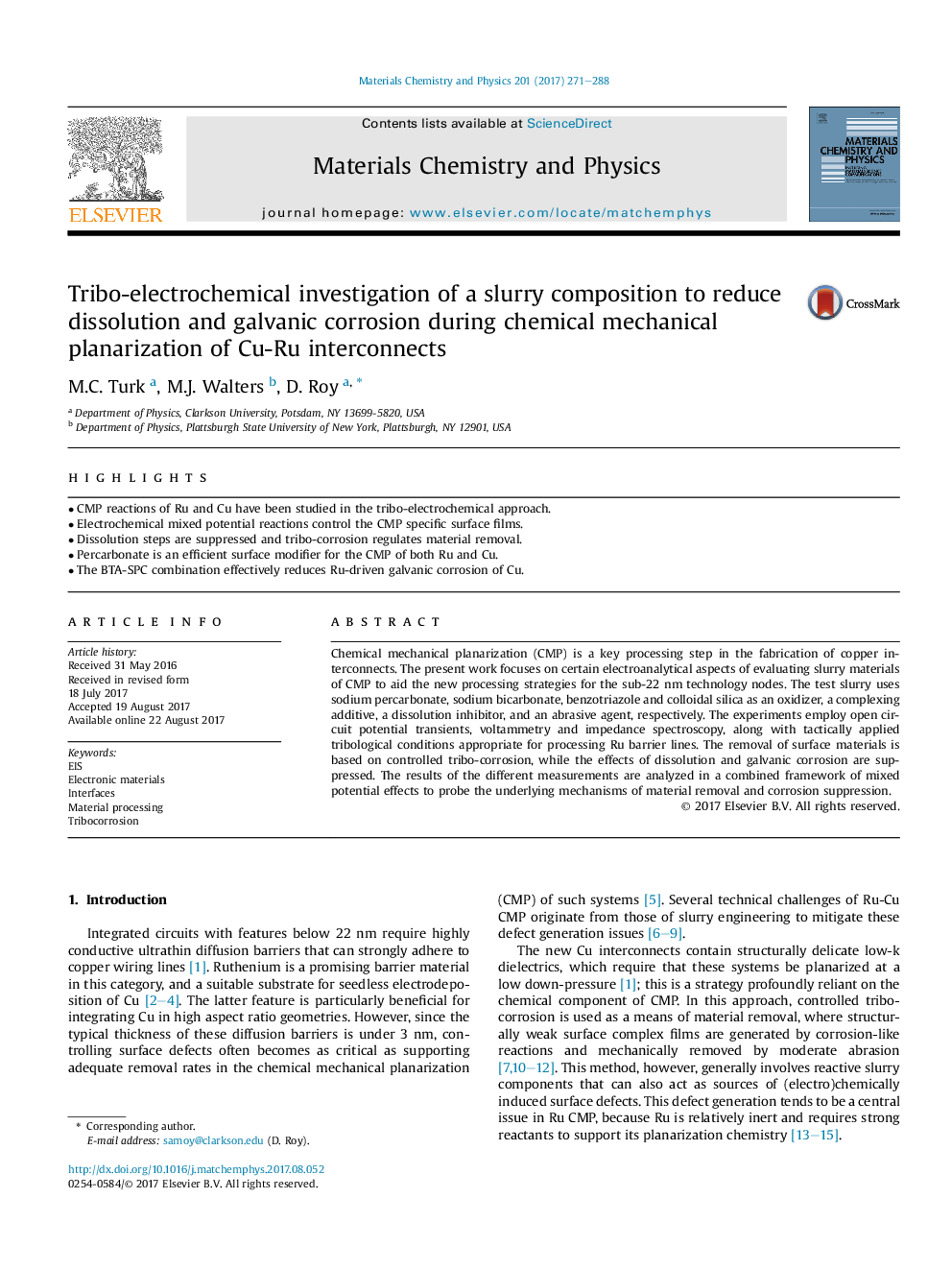| Article ID | Journal | Published Year | Pages | File Type |
|---|---|---|---|---|
| 5447779 | Materials Chemistry and Physics | 2017 | 18 Pages |
Abstract
Chemical mechanical planarization (CMP) is a key processing step in the fabrication of copper interconnects. The present work focuses on certain electroanalytical aspects of evaluating slurry materials of CMP to aid the new processing strategies for the sub-22Â nm technology nodes. The test slurry uses sodium percarbonate, sodium bicarbonate, benzotriazole and colloidal silica as an oxidizer, a complexing additive, a dissolution inhibitor, and an abrasive agent, respectively. The experiments employ open circuit potential transients, voltammetry and impedance spectroscopy, along with tactically applied tribological conditions appropriate for processing Ru barrier lines. The removal of surface materials is based on controlled tribo-corrosion, while the effects of dissolution and galvanic corrosion are suppressed. The results of the different measurements are analyzed in a combined framework of mixed potential effects to probe the underlying mechanisms of material removal and corrosion suppression.
Related Topics
Physical Sciences and Engineering
Materials Science
Electronic, Optical and Magnetic Materials
Authors
M.C. Turk, M.J. Walters, D. Roy,
